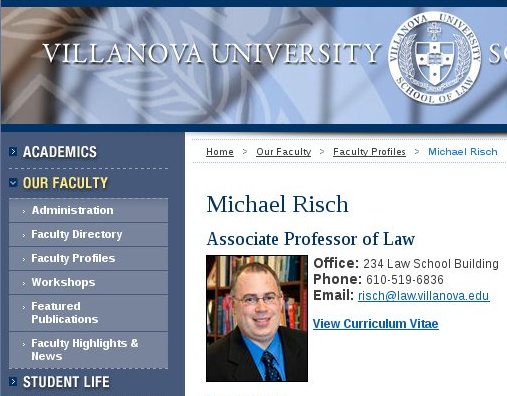

THE U.S. Patent and Trademark Office (USPTO) has returned to a leadership of patent maximalists (people who predate Michelle Lee) -- much like the European Patent Office (EPO) under Battistelli and António Campinos -- an issue we'll have a lot more to say about tomorrow. A patent office which disregards patent quality does not promote or protect innovation; instead it protects litigation. There's a tradeoff between defense and offense and some patents, due to their nature and their so-called 'owner', will never yield anything except lawsuits. There's some new coverage by Crain's Chicago Business regarding Motorola under the headline "patents provide the sword and the shield". It is possible to have a lot of patents and still not sue anybody.
[PDF] from Alfons Palangkaraya (Swinburne University of Technology) and Elizabeth Webster (Swinburne University of Technology; The University of Melbourne - Melbourne Institute of Applied Economic and Social Research). The abstract says that they found "the ability to obtain patent protection depends not only on the quality of the invention but also on the quality of the patent attorney." To quote:
Failure to obtain a patent weakens the market position and production chain of enterprises in patent-intensive technology domains. For such enterprises, finding ways to maximise the chance to obtain patent protection is a business imperative. Using information from patent applications filed in at least two of the five largest patent offices in the world between 2000 and 2006, we find that the ability to obtain patent protection depends not only on the quality of the invention but also on the quality of the patent attorney. In some cases, the latter is surprisingly more important than the former. We also find that having a high-quality patent attorney increases the chance of getting a patent in less codified technology areas such as software and ICT.
It stands to reason that better attorneys are better at turning patent applications into patents. Theoretically, better arguments about overcoming prior art, for example, will be more likely to lead to granted claims. But what about the quality of inventions? Maybe better patent attorneys just get better patent applications, so of course they have better success rates.
Measuring this is hard, but Gaétan de Rassenfosse (Ecole Polytechnique Fédérale de Lausanne) and four co-authors from University of Melbourne and Swinburne University of Technology think they have found the answer. Examining 1.2 million granted and refused patent applications in the US, Europe (EPO), China, Japan, and South Korea, they think they have the answer.
CUNA members can now access a free recording of a webinar outlining the latest development in patent litigation brought against several credit unions involving remote deposit capture (RDC) technology. The live version of the webinar hit capacity, with 1,000 credit unions registering to attend.
A law firm representing USAA began sending out patent licensing demands to many credit unions in late 2017, alleging those institutions were infringing on a USAA patent involving RDC services.